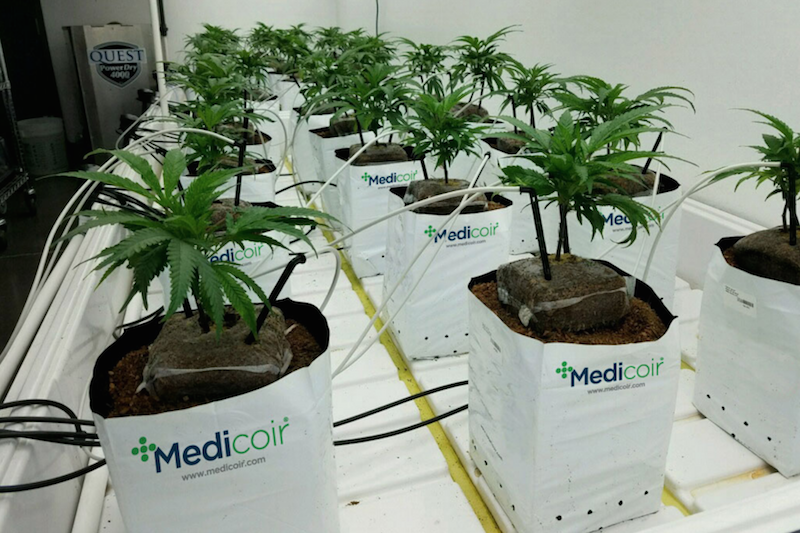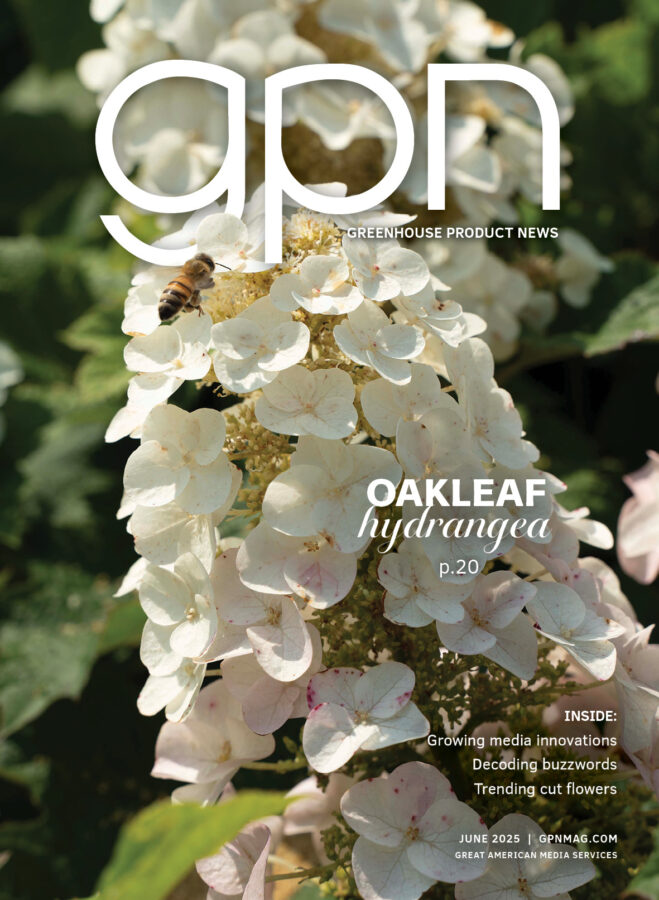
Medicoir Launches Biodegradable Plastic For Cannabis Container Growing
Medicoir, a global producer of coir substrate for cannabis crops, has launched its biodegradable plastic containers.
There are many options available to when it comes to substrate choice for cannabis plants, from the size of growing container and whether to repot later in the crop, to the shape of the container and which type of growing media to use.
In recent years, many growers have started to move over to 100% coir substrates for their cannabis crops, which would generally be a mix of coir pith, short cut fibre and 3-5mm particles. The nature of coir means that during the production process it can be sieved to remove all of the fine dust particles (<1mm) and therefore encouraging better root development and a free draining environment. And in a more practical sense, coir can be dried and compressed, offering big savings in transport, storage and handling.

“The most popular product we produce for the medicinal cannabis industry are 10L Open Top Containers,” said Kalum Balasuriya, managing director at Medicoir. “These blocks are compressed at our facilities and come ready packed in their own poly-pot which can be unfolded before hydrating the coir block inside.”
“Due to the short crop cycle, we were concerned about the amount of plastic that was being used for these products. Although we have always used recyclable plastic, we felt that we needed to take one step further,” said Balasuriya.
Medicoir is using EcoPure, which is an organic additive that causes plastic to biodegrade through a series of chemical and biological processes when disposed of in a microbe-rich environment. Microbes send out chemical signals attracting other microbes and collectively they feast on the polymer chains breaking down the chemical bonds. The by-products of the biodegradation process depend on the disposal environment but are non-toxic and some are even economically valuable for energy, such as Methane. Other by-products include humus (which can be used to make soil richer) and carbon dioxide.
“We are thrilled to be able to offer this alternative to growers who are looking for more environmentally friendly growing choices,” said Balasuriya. “It is very important to use that we work in a way that looks after our planet and I feel this is a very positive step to take.”









